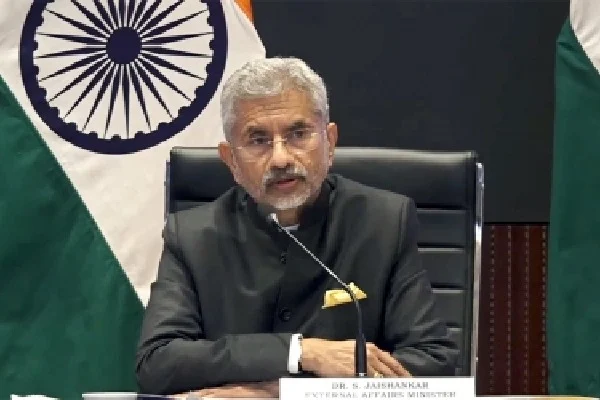India’s External Affairs Minister, S. Jaishankar, embarked on a two-day visit to South Korea, where he emphasized the importance of South Korea’s participation in India-led initiatives aimed at addressing key global challenges. During his visit, Jaishankar chaired a joint commission meeting with his South Korean counterpart and engaged in discussions to enhance bilateral cooperation in various fields.
One of the significant aspects of Jaishankar’s visit was his pitch for South Korea’s involvement in India-led initiatives such as the International Solar Alliance (ISA), the Coalition for Disaster Resilient Infrastructure (CDRI), and the Indo-Pacific Oceans Initiative. These initiatives, spearheaded by India, focus on addressing pressing global issues ranging from renewable energy and climate change to maritime security and disaster resilience.
In his address at the Korean National Diplomatic Academy, Jaishankar highlighted the importance of maritime security, particularly in the context of South Korea’s role as an important trading nation. He emphasized India’s efforts in hosting the Fusion Centre, a collaborative platform resulting from White Shipping agreements with various partners. The Fusion Centre facilitates the sharing of maritime domain awareness to enhance maritime security across the Indian Ocean region.
Jaishankar also underscored the significance of South Korea’s participation in initiatives like the Indo-Pacific Oceans Initiative, which encompasses a wide range of ocean-related issues such as ecology, environment, transportation, and science and technology. He emphasized that South Korea’s involvement in such initiatives would be a valuable addition, contributing to the collective efforts towards sustainable ocean governance and cooperation in the Indo-Pacific region.
Additionally, Jaishankar advocated for cooperation through the International Solar Alliance (ISA) and the Coalition for Disaster Resilient Infrastructure (CDRI), both of which are led by India. These initiatives aim to promote renewable energy adoption and build resilience against natural disasters, aligning with the broader goals of sustainable development and climate action.
In the realm of trade and economic relations, Jaishankar called for greater collaboration on supply chain security and urged for expediting the review of the India-Korea Comprehensive Economic Partnership Agreement (CEPA), signed in 2009. Addressing concerns about the trade imbalance between India and South Korea, Jaishankar emphasized the need for balanced and mutually beneficial trade relations.
During his visit, External Minister Jaishankar held meetings with key Korean officials, including Prime Minister Han Duck-Soo, Trade Minister Ahn Dukgeun, and Director of National Security Chang Ho-jin. These interactions provided an opportunity to discuss bilateral issues, explore areas of cooperation, and strengthen the strategic partnership between India and South Korea.
Overall, Jaishankar’s visit to South Korea underscores the importance of diplomatic engagement and collaboration in addressing shared challenges and advancing mutual interests. By advocating for South Korea’s participation in India-led initiatives and enhancing bilateral cooperation across various sectors, both countries aim to deepen their strategic partnership and contribute to regional and global stability and prosperity.
